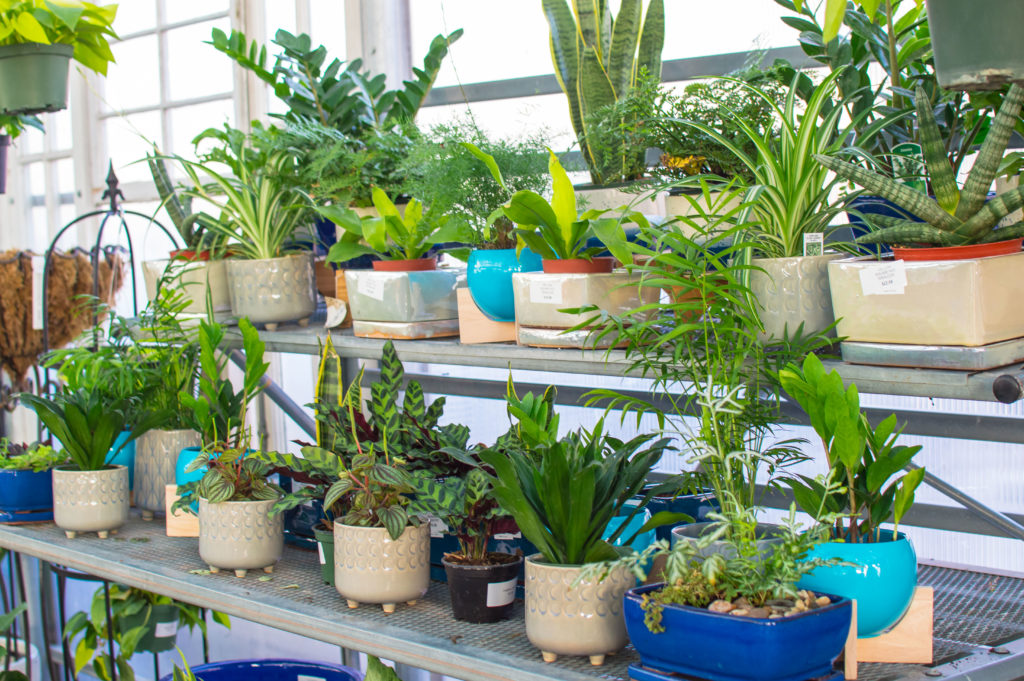Winter is here! So while you cannot enjoy the outside as much, bring nature inside to enjoy in the comfort of your home! There are just few things you need to know first about houseplant care during the winter months!
Houseplant Winter Watering
Surprisingly, houseplant’s watering routine will need to be adjusted in the winter as well! Just like your outdoor plants, they do not need the same amount of water during these cold months as they do in the spring, summer, and fall. Home and gardening publication, The Spruce, talks about how since “winter air is drier, plants experience a slower rate of growth during cold weather.”
Read more about winter watering for your home and landscape in our previous blog!
Climate & Humidity
Houseplants prefer for humidity levels to hover around 50%. Because of winter’s drier air, humidity levels will obviously drop. To help your houseplants combat this climate change, there are a number of things you can do. The first one would be to cluster your houseplants together. Water is released through the leaves of plants, so by grouping them up, they will create their own microclimate of sorts. A humidifier is another option for holding the humidity levels in your home to the level that houseplants need. Grouping them within the vicinity of the humidifier will produce the best results.
There are also areas within your home that are going to have more moisture in the air than others. Kitchens and especially bathrooms are typically the most humid rooms in the house. Houseplants love the warm steam that comes from your shower or sink! Houses with second floors will sometimes have higher humidity as well since heat rises.
Pebble trays or cache pots that do not allow the plant’s roots to sit in standing water are helpful in raising the humidity. This option is going to allow you to keep your plants in the same spot for the most part. Pebbles can be used in the pot or a tray to raise the plant up and allow for good drainage as well. As a good rule of thumb, most plants, indoor and outdoor, have a really hard time with constantly wet soil conditions. This can cause root rot. Plants are more likely to be able to bounce back from under-watering than over-watering. As a good rule of thumb, placing pebbles topped by a layer of fabric in the bottom of your pots is optimum for keeping your plant’s roots from rotting. This is especially helpful for pots that do not have a drainage hole or pots with tray that are not very deep.
While misting can provide some humidity and moisture for your houseplants, the water usually evaporates from the leaves too fast to have long lasting beneficial effect. Misting is care tactic that is best held for the winter as it can cause fungal problems in the summer. However, do not mist your succulents as they are not as keen on heavy humidity or moisture.
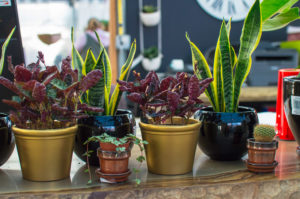
Temperature & Houseplants
Large temperature fluctuations can be a problem for houseplants. Their ideal temperature range is 65 to 75 degrees during the day and 50 degrees at night. If you have a terrarium room in your house, it will need to be kept at a minimum of 50 degrees. This is the minimum temperature we try to keep our Garden Center at during the winter months to keep our houseplants and succulents happy and healthy! Extreme temperature areas in your home are not suitable for houseplants either. Places near a heating vent, radiator, oven, or fireplace can create a very dry atmosphere for a houseplant as well as cause heat stress. During the winter months, some areas that were once ideal for your plant may become too cold. For example, windowsills can develop into a cold, drafty spot that can damage the foliage.
Houseplants for Low Humidity
Although humidity levels are important for some houseplants, not all of them are particularly sensitive to it.
A few examples of the houseplants we carry that don’t need as much humidity are:
- Haworthia (or Zebra Plant)
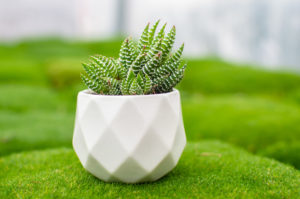
- Sansevieria (or Snake Plant or Mother-in-Law’s Tongue)
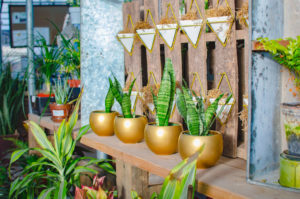
- Peperomia obtusifolia (or Baby Rubber Plant)
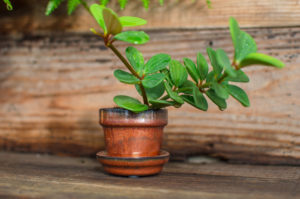
- Philodendron scandens oxycardium (or Heartleaf Philodrendron)
These also do well in more humid conditions as well!
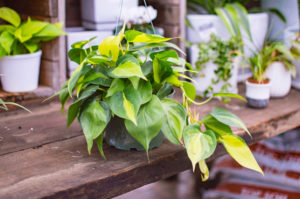
- Succulents
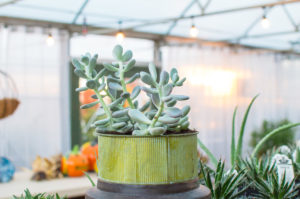
Stay tuned for more updates on your favorite houseplants!

